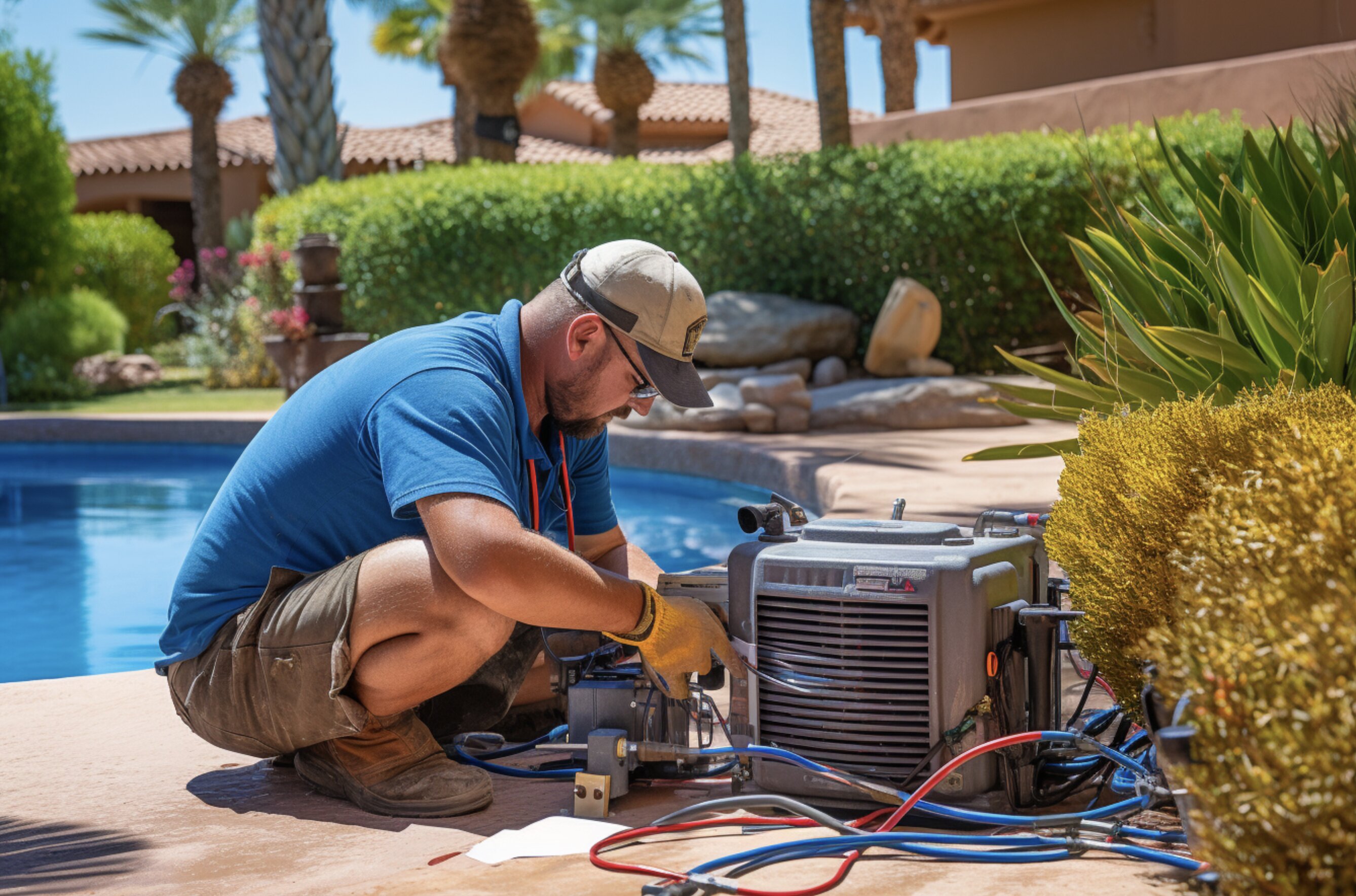Heaters and Heat Pumps: Year-Round Pool Comfort
A well-maintained heater or heat pump can provide comfort and extend your swimming season, even during the cooler months in Phoenix. Understanding the different heating options and their care can keep your pool at the perfect temperature whenever you desire a dip.
Types of Pool Heating Systems
Gas Heaters
Ideal for rapid heat-up times, gas heaters are great for pools that aren’t used regularly. These heaters can maintain warmth efficiently, regardless of the weather, but do rely on natural gas or propane, which can be costly depending on energy prices.
Electric Resistance Heaters
These heaters generate warmth using an electrical current. They are most suitable for small, portable pools due to their high operating costs for larger volumes of water.
Heat Pumps
Heat pumps are a more cost-effective and eco-friendly option for consistent pool use. They utilize ambient air to heat the pool, requiring less energy than gas heaters. Heat pumps operate most efficiently in warmer temperatures but can still provide a comfortable swimming environment during cooler weather.
Solar Heaters
Solar heaters harness energy from the sun, making them the most environmentally conscious choice. They consist of solar panels typically installed on your roof, where water is heated before returning to the pool. While the initial investment is significant, solar heaters have minimal operating costs.
Maintaining Your Pool Heaters and Heat Pumps
Regular Check-Ups
Schedule an annual service check-up with a professional technician, preferably before the swimming season begins. This ensures your system is in top shape and can help you avoid peak-season repair delays.
Keep It Clean
For heat pumps, make sure the evaporator coil is clean and free from debris, as this can restrict airflow and decrease efficiency. For gas heaters, check that the burner tray is clear of any obstructions or debris that may affect the flame.
Monitor Performance
Pay attention to heating performance. If you notice it’s taking longer to heat the pool or if the heater is cycling on and off more than it should, it may indicate a problem with the thermostat or a mechanical issue.
Protect From the Elements
Although designed for outdoor use, covering your gas heater or heat pump can protect it from harsh weather, especially during periods of non-use. However, ensure that any covers allow for proper ventilation to avoid creating moisture issues.
Ensure Proper Installation
Solar heating systems, due to their complexity, should always be installed by a qualified professional to ensure they operate at peak efficiency.
Check for Leaks
Regularly inspect connections and fittings for leaks. A small water leak or a gas leak in a heater can lead to more significant issues if left unaddressed.
By taking the proper steps to maintain your pool’s heating system, you can guarantee warm, swim-ready waters year-round. If you opt for hassle-free maintenance or require installation services, consider reaching out to expert technicians. Visit our pool service recommendation page to find qualified professionals who can help keep your heaters and heat pumps operating efficiently.


